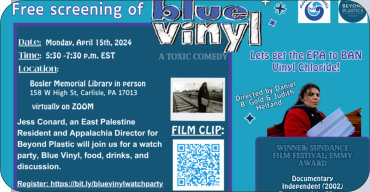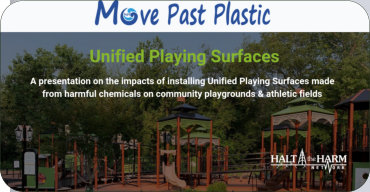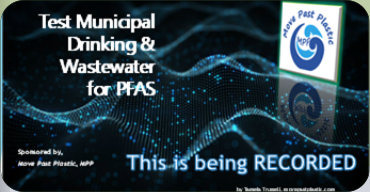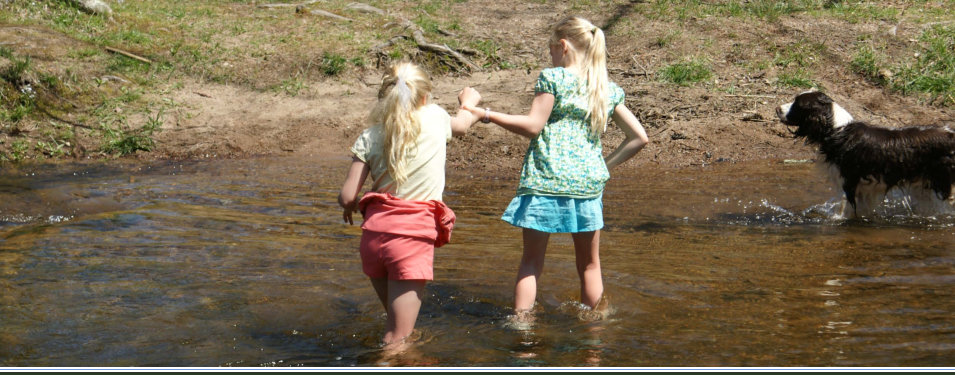

Move Past Plastic, MPP

Sponsored by TLC Foundation

© Lorem ipsum dolor sit Nulla in mollit pariatur in, est ut dolor eu eiusmod lorem
Videos Presentations
Participant’s Reviews
“What can I say? I was totally wowed by her PFAS Part I and II presentations! She is a dynamic and an engaging speaker who truly knows her stuff! I learned so much from the presentations and then receiving the PFAS Toolkit, which is chocked full of information and resources – that was an added bonus. I continue to refer people to her as she indeed knows more about the subject than anyone I am yet to meet. She explains things so people can easily understand, and her passionate work with Move Past Plastic as an activist and an educator will surely move us toward the changes we need to reduce contamination in our food, water, and air. Thank you, Tamela!” Tami A. Renkoski, CIH Certified Industrial Hygienist Allegan, MichiganBlue Vinyl Watch Party Discussion
This is a watch party and discussion of the harms of polyvinyl chloride. We watch an excerpt of Blue Vinyl and Jess Conard, an East Palestine Resident and Appalachia Director for Beyond Plastic, video about video about Ohio's Toxic Derailment and Polyvinyl Chloride Jess Conard joined the discussion, and we explored solutions. Blue Vinyl is a combination detective story, eco-activism documentary, and rollicking comedy that puts a human face on the dangers posed by polyvinyl chloride (PVC) at every stage of its life cycle. As environmental movie distributor Bullfrog Films puts it, “Consumer consciousness and the precautionary principle have never been so much fun!” Recognition: Winner of a Sundance Film Festival Award, nominated for two Emmy Awards. Synopsis: Turned off by her parents’ decision to put vinyl siding on their small Long Island house, director Judith Helfand takes viewers on her 5-year adventure across the United States and to Europe to get the back story on vinyl. Along the way, she meets area residents who suffer from cancer and respiratory ailments–shining a spotlight on environmental justice years before the term became popular. She shows how they became empowered to test local air quality using simple buckets–soon discovering how vinyl chloride in the air often exceeded limits, arbitrary limits, because there is no safe level of exposure to vinyl chloride.Hazards of Synthetic Playing Surfaces
Synthetic Playing surfaces (also known as Unified Playing Surfaces) are rapidly being put in our community playgrounds and sports fields. This leads to health harm to our children, athletes, and the environment. These surfaces are not regulated or third-party tested for their safety claims. Health harms range from impact injuries, burns, longer athlete recovery time, and exposure to toxic chemicals. These products are more expensive than alternatives. They are toxic to the health of our watersheds. These problems expose schools, municipalities, and businesses to the risk of future litigation. Discover what toxic chemicals and microplastics leach into our children's and wildlife's skin, lungs, and digestive tract. Our air, water, and soil are full of these toxins already, and we shouldn't expose our most vulnerable populations to these hazards. Join Halt the Harm Network's AC Stauble, Move Past Plastic's Tamela Trussell , and special guest speakers Aaron Golembiewski, Head of Business Development for Turf Talents, to discuss alternatives to the harmful synthetic turfs for this educational event.How to Ensure Safe Drinking Water
presentation.
Finally, the EPA has acknowledged the hazards of perfluoroalkyl and polyfluoroalkyl substances (PFAS) and is setting scientifically supported maximum contaminant levels (MCL). DEP has published its PFAS rule-making. Learn what this means for your community. PFAS compounds are pervasive in our society. They are found in our bodies, household dust, clothing, cosmetics, and many other products that we use daily, and are found in drinking water. MPP is offering presentations to learn more about PFAS and how to engage your municipality in testing their drinking water for these toxic bioaccumulating chemicals.Zero Waste Team In Action
PFAS In Things You Aren't Thinking About - Feb 22,
2023 Hosted by Zero Waste, PA Sierra Club
Are we being exposed to Forever Chemicals (PFAS) through local farms because of contamination in the municipal sludge that farms use for fertilizer? Are we at risk from unsafe levels of PFAS in other everyday items, like our clothes? Hear how local activists testing and analyzing in places where the EPA and DEPA have been slow to investigate. Tamela Trussell from Move Past Plastic will speak about PFAS exposure from clothes, utensils, packaging and other stuff that we may not think about. Darree Sicher from the SC/PA Food & Ag team will speak about PFAS link between our foods and farms and the use of sewage sludge/biosolids marketed as a “fertilizer”.Monitor and Protect Conodoguinet Creek -
Part 1
The first recording of the series, Monitor and Protect Conodoguinet Creek - Part 1 Sponsored by Move Past Plastic, MPP, and hosted by Conodoguinet Creek Watershed Association, CCWA and Penn State Extension. This program was held virtually on October 26th at 6:30-7:30 p.m. Our speaker was Jerry Steigleman, Middlesex Township Asst. Code Enforcement Officer. He shared his very personal story of the history, content, and potential hazards of several past waste sites in and near Carlisle.Break Free From Plastic Extration
BFFP Cono Ck with Outtakes
This video is a message to the Biden administration asking him to ban further petrochemical build out and protect PA's watersheds. We also ask him to support local communities in handling single use plastic by building real recycling infrastructure and requiring single use plastic to contain a minimum of 30% recycled plastic. Latest news for evidence for these ask: Pa. charges Energy Transfer with environmental crimes over Mariner East pipeline project The company has already paid more than $20 million in fines for more than 120 violations of the state’s Clean Streams Law. That same law is the basis for the criminal charges announced Tuesday. By Susan Phillips | UPDATED: OCTOBER 5, 2021 | 5:52 PM ------------------------------------------- Shell hit with violations for chemical odor in county; investigation ongoing Chrissy Suttles Beaver County Times -------------------------------------------------- PennEast Pipeline is Cancelled! September 30, 2021 by Abigail M. Jones, Vice President of Legal and PolicyBFFP FF FACTS with Outtakes #2
This video is a message to the Biden administration asking him to ban further petrochemical build out and stop using American tax dollars to subsidies an industry that harms us and our environment. We also ask him to support local communities in handling single use plastic by building real recycling infrastructure and requiring single use plastic to contain a minimum of 30% recycled plastic.You’re Breathing in Microplastics, But
What Does That Mean for Your Health?
Microplastics are everywhere—in our food, water, and now even the air we breathe. But scientists are just starting to understand how airborne microplastics end up in the atmosphere and what happens when we breathe them in.How Close
Are We to
Reinventing Plastic?
Our dependence on plastic is so extreme that we have microplastics not only floating through the ocean, but also in the atmosphere, in our food, and in our bodies. So how close are we to reinventing plastic?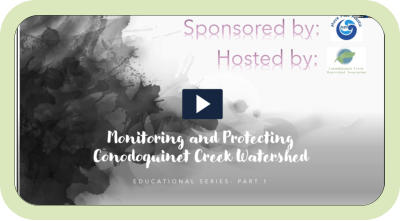












•
"It was SO thorough. I went from not knowing much about this process
and feeling like I had professional level skills," by Caroline from
Restorative Harmony.
•
"Getting to specific information for each community," by Kathy from the
PA League of Women Voters.
"In-depth presentation" by Kurt from Climate Reality.
A Series of Conversations for Single-Use
Plastic






Move Past Plastic, MPP

Sponsored by TLC Foundation

© Lorem ipsum dolor sit Nulla in mollit pariatur in, est ut dolor eu
eiusmod lorem
Videos
Presentations
Participant’s
Reviews
“What can I say? I was totally wowed by her PFAS Part I and II presentations! She is a dynamic and an engaging speaker who truly knows her stuff! I learned so much from the presentations and then receiving the PFAS Toolkit, which is chocked full of information and resources – that was an added bonus. I continue to refer people to her as she indeed knows more about the subject than anyone I am yet to meet. She explains things so people can easily understand, and her passionate work with Move Past Plastic as an activist and an educator will surely move us toward the changes we need to reduce contamination in our food, water, and air. Thank you, Tamela!” Tami A. Renkoski, CIH Certified Industrial Hygienist Allegan, MichiganBlue Vinyl Watch
Party Discussion
This is a watch party and discussion of the harms of polyvinyl chloride. We watch an excerpt of Blue Vinyl and Jess Conard, an East Palestine Resident and Appalachia Director for Beyond Plastic, video about video about Ohio's Toxic Derailment and Polyvinyl Chloride Jess Conard joined the discussion, and we explored solutions. Blue Vinyl is a combination detective story, eco-activism documentary, and rollicking comedy that puts a human face on the dangers posed by polyvinyl chloride (PVC) at every stage of its life cycle. As environmental movie distributor Bullfrog Films puts it, “Consumer consciousness and the precautionary principle have never been so much fun!” Recognition: Winner of a Sundance Film Festival Award, nominated for two Emmy Awards. Synopsis: Turned off by her parents’ decision to put vinyl siding on their small Long Island house, director Judith Helfand takes viewers on her 5- year adventure across the United States and to Europe to get the back story on vinyl. Along the way, she meets area residents who suffer from cancer and respiratory ailments–shining a spotlight on environmental justice years before the term became popular. She shows how they became empowered to test local air quality using simple buckets–soon discovering how vinyl chloride in the air often exceeded limits, arbitrary limits, because there is no safe level of exposure to vinyl chloride.Hazards of Synthetic
Playing Surfaces
Synthetic Playing surfaces (also known as Unified Playing Surfaces) are rapidly being put in our community playgrounds and sports fields. This leads to health harm to our children, athletes, and the environment. These surfaces are not regulated or third-party tested for their safety claims. Health harms range from impact injuries, burns, longer athlete recovery time, and exposure to toxic chemicals. These products are more expensive than alternatives. They are toxic to the health of our watersheds. These problems expose schools, municipalities, and businesses to the risk of future litigation. Discover what toxic chemicals and microplastics leach into our children's and wildlife's skin, lungs, and digestive tract. Our air, water, and soil are full of these toxins already, and we shouldn't expose our most vulnerable populations to these hazards. Join Halt the Harm Network's AC Stauble, Move Past Plastic's Tamela Trussell , and special guest speakers Aaron Golembiewski, Head of Business Development for Turf Talents, to discuss alternatives to the harmful synthetic turfs for this educational event.How to Ensure Safe
Drinking Water
presentation.
Finally, the EPA has acknowledged the hazards of perfluoroalkyl and polyfluoroalkyl substances (PFAS) and is setting scientifically supported maximum contaminant levels (MCL). DEP has published its PFAS rule- making. Learn what this means for your community. PFAS compounds are pervasive in our society. They are found in our bodies, household dust, clothing, cosmetics, and many other products that we use daily, and are found in drinking water. MPP is offering presentations to learn more about PFAS and how to engage your municipality in testing their drinking water for these toxic bioaccumulating chemicals.Zero Waste Team In
Action
PFAS In Things You Aren't
Thinking About - Feb 22,
2023 Hosted by Zero Waste,
PA Sierra Club
Are we being exposed to Forever Chemicals (PFAS) through local farms because of contamination in the municipal sludge that farms use for fertilizer? Are we at risk from unsafe levels of PFAS in other everyday items, like our clothes? Hear how local activists testing and analyzing in places where the EPA and DEPA have been slow to investigate. Tamela Trussell from Move Past Plastic will speak about PFAS exposure from clothes, utensils, packaging and other stuff that we may not think about. Darree Sicher from the SC/PA Food & Ag team will speak about PFAS link between our foods and farms and the use of sewage sludge/biosolids marketed as a “fertilizer”.Monitor and Protect
Conodoguinet Creek
- Part 1
The first recording of the series, Monitor and Protect Conodoguinet Creek - Part 1 Sponsored by Move Past Plastic, MPP, and hosted by Conodoguinet Creek Watershed Association, CCWA and Penn State Extension. This program was held virtually on October 26th at 6:30-7:30 p.m. Our speaker was Jerry Steigleman, Middlesex Township Asst. Code Enforcement Officer. He shared his very personal story of the history, content, and potential hazards of several past waste sites in and near Carlisle.Break Free From
Plastic Extration
BFFP Cono Ck with
Outtakes
This video is a message to the Biden administration asking him to ban further petrochemical build out and protect PA's watersheds. We also ask him to support local communities in handling single use plastic by building real recycling infrastructure and requiring single use plastic to contain a minimum of 30% recycled plastic. Latest news for evidence for these ask: Pa. charges Energy Transfer with environmental crimes over Mariner East pipeline project The company has already paid more than $20 million in fines for more than 120 violations of the state’s Clean Streams Law. That same law is the basis for the criminal charges announced Tuesday. By Susan Phillips | UPDATED: OCTOBER 5, 2021 | 5:52 PM -------------------------------------- ----- Shell hit with violations for chemical odor in county; investigation ongoing Chrissy Suttles Beaver County Times -------------------------------------- ------------ PennEast Pipeline is Cancelled! September 30, 2021 by Abigail M. Jones, Vice President of Legal and PolicyBFFP FF FACTS with
Outtakes #2
This video is a message to the Biden administration asking him to ban further petrochemical build out and stop using American tax dollars to subsidies an industry that harms us and our environment. We also ask him to support local communities in handling single use plastic by building real recycling infrastructure and requiring single use plastic to contain a minimum of 30% recycled plastic.You’re Breathing in
Microplastics, But
What Does That
Mean for Your
Health?
Microplastics are everywhere—in our food, water, and now even the air we breathe. But scientists are just starting to understand how airborne microplastics end up in the atmosphere and what happens when we breathe them in.How Close Are We
to Reinventing
Plastic?
Our dependence on plastic is so extreme that we have microplastics not only floating through the ocean, but also in the atmosphere, in our food, and in our bodies. So how close are we to reinventing plastic?









































